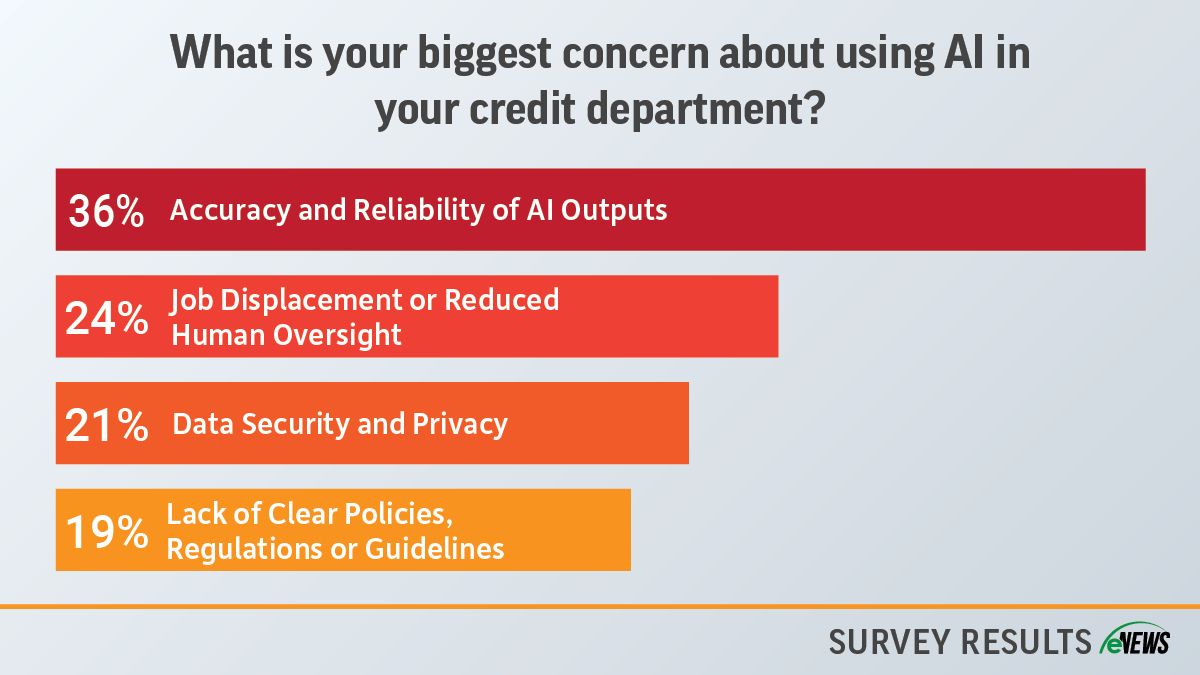eNews, Leadership
Overcoming imposter syndrome in credit management

Imposter syndrome is a psychological phenomenon that causes high-achieving individuals to doubt their own skills, ability, intellect or accomplishments. Though it may seem arbitrary for career-oriented, high-performing professionals to question their own abilities, self-doubt doesn’t discriminate.
Why it matters: Imposter syndrome not only affects confidence but can also influence decision-making and interactions with clients and colleagues. This article delves into the commonality of imposter syndrome among B2B credit managers, its implications and strategies to overcome it.
By the numbers: 71% of U.S. CEOs say they experience imposter syndrome, according to a 2024 survey from Korn Ferry. Senior management, including CEOs (71%) and other senior executives (65%) are more likely to show signs of imposter syndrome than early-stage professionals (33%). Whether you have been in the profession for a few months or 20 years, imposter syndrome can happen at any stage of your career.
The most common examples of imposter syndrome include:
- Not taking credit for your role in the success of a project or task
- Not asking for a pay raise you have earned
- Feelings of anxiety or guilt when being rewarded
- Avoiding putting yourself in the open for promotions or awards
- Turning down opportunities you secretly want and deserve
Imposter syndrome is a battle you can defeat with a little bit of practice. Here are a few ways to do so:
Remember that it’s normal. For first-time managers, moving into a leadership position can stir up common feelings of wondering if you are the right person for others to look up to in the workplace. “At one point in my career, I had the title of ‘credit manager’ without any formal education,” said Annie Kopanski, CCE, regional credit manager North America at ESCO Group (Fredericksburg, VA). “I taught myself financial statements analysis, never stopped asking questions and worked hard to prove to myself and the company’s leadership that I was worthy of the title I’d been given. I get through imposter syndrome by forcing myself to learn and grow at every opportunity. Ultimately, I overcame those feelings by securing my Certified Credit Executive (CCE) designation last fall.”
Change your perspective. The way you approach imposter syndrome plays a key role in how you can defeat it. The three Ps of imposter syndrome are perfectionism, paralysis and procrastination. Perfectionism means the desire to do something perfectly, without making a mistake. Paralysis can make you feel stuck because the thought of an idea makes you overwhelmed and procrastination causes you to wait something out to avoid a bigger problem. With a different perspective, you can shift your focus on what you can do instead of what you can’t. However, this can be more difficult for credit professionals who did not start in credit with a financial background.
“I come from a background of sales and retail as a stockroom manager with an associate’s degree in photography,” said Ashley Kusiolek, AR specialist at Trinity Logistics (Seaford, DE). “It was way left field from the credit and collections world, so I had a lot of anxiety with starting a new role in accounts receivable. Most of my self-doubt stemmed from whether I made the right career shift. I would ask myself; Am I capable of proving to my leadership team that they made the right choice giving me a chance? Even when told I was doing great, progressing and catching on, I would still question if I was performing at the highest level. But I realized I’m not alone, and my thoughts are completely normal.”
Remind yourself of your accomplishments. After a long time in the workforce, it is common to forget or diminish the value of your accomplishments. Whether big or small, your contributions matter. One tip you can follow is updating your personal bio. When you see who you are in written words, it can be a great boost of confidence. However, even for professionals who receive high-achieving awards, the seed of doubt remains.
Stephanie Wilson, accounting specialist at Trinity Logistics (Seaford, DE), said she was nominated by her peers for her company’s Make it Happen award the previous year. “I remember hearing my name called, walking up to the podium to get my award in front of everyone and thinking I didn’t deserve to get that award at all,” Wilson said. “I didn’t give myself enough time to celebrate all the accomplishments from the year. I realized there was no reason for me to sit here and think that I didn’t deserve this or think about other people who deserved it over me.”
Wilson said she likes to make a list of accomplishments, skills and experiences that contributed to her role and organization along with clear, achievable goals. “I break the goals down into smaller tasks or even milestones that I can accomplish gradually instead of trying to tackle it all at one time,” Wilson said. “Seeing it in front of you makes you feel better.”
You don’t have to be the best at everything. Although difficult for perfectionists to accept, the best leaders can make mistakes. Imposter syndrome will make you believe that if something is not flawless, it is fake or invaluable. “There’s never a point in credit where you’ll feel you have mastered it completely,” said Kusiolek. “Credit and collections and the accounts receivable role is just a continuum of learning something new every single day. Getting over that imposter syndrome means I must keep moving. You’re going to make mistakes, but those are your best ways to learn, so don’t correlate those mistakes with what you don’t deserve.”
The bottom line: You are not alone when it comes to imposter syndrome. With self-awareness and proactive strategies, it is a battle that can be overcome.





